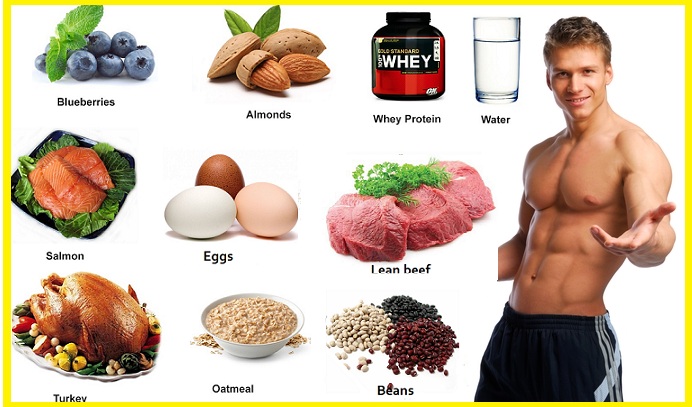Healthy Diet to Support Body Fitness

The Importance of a Healthy Diet for Body Fitness
A healthy diet is essential for anyone who wants to maintain good health and fitness. When you eat a balanced diet, you provide your body with the nutrients it needs to function at its best. This includes everything from vitamins and minerals to protein, carbohydrates, and healthy fats. Without these essential nutrients, your body can't perform at its peak, which can lead to fatigue, weakness, and poor athletic performance.
The Best Foods for Body Fitness
When it comes to building a healthy diet to support body fitness, there are some foods that are particularly important. These include:
- Lean proteins, such as chicken, turkey, fish, and tofu, which help build and repair muscle tissue
- Complex carbohydrates, such as whole grains, fruits, and vegetables, which provide energy for exercise and help regulate blood sugar levels
- Healthy fats, such as avocado, nuts, and olive oil, which help support brain function and reduce inflammation in the body
- Hydrating fluids, such as water and herbal tea, which help maintain proper hydration levels and support overall health
Creating a Balanced Diet for Body Fitness
One of the keys to creating a healthy diet for body fitness is to focus on balance. This means incorporating a variety of nutrient-dense foods into your meals and snacks throughout the day. Some tips for creating a balanced diet include:
- Choose a variety of colorful fruits and vegetables to ensure you're getting a range of vitamins and minerals
- Incorporate lean proteins into each meal to support muscle growth and repair
- Choose whole grains over refined grains to provide sustained energy and stable blood sugar levels
- Incorporate healthy fats into your diet, but be mindful of portion sizes to avoid excess calories
- Stay hydrated by drinking plenty of water and other hydrating fluids throughout the day
The Benefits and Drawbacks of a Healthy Diet for Body Fitness
There are many benefits to eating a healthy diet to support body fitness. These include:
- Improved energy levels and athletic performance
- Reduced inflammation in the body
- Better overall health and well-being
- Reduced risk of chronic diseases such as heart disease, diabetes, and cancer
However, there can also be drawbacks to following a strict or restrictive diet. These can include:
- Feelings of deprivation or restriction
- Difficulty socializing or eating out
- Increased risk of nutrient deficiencies if the diet is too restrictive
FAQs
1. What is the best time to eat before a workout?
The best time to eat before a workout is about 2-3 hours before you plan to exercise. This will give your body time to digest the food and convert it into energy to fuel your workout.
2. Is it okay to eat carbs if I'm trying to lose weight?
Yes, it's okay to eat carbs if you're trying to lose weight. The key is to choose complex carbohydrates, such as those found in fruits, vegetables, and whole grains, which provide sustained energy and help regulate blood sugar levels.
3. Can I get enough protein on a vegetarian or vegan diet?
Yes, it's possible to get enough protein on a vegetarian or vegan diet. Good sources of plant-based protein include beans, lentils, tofu, tempeh, nuts, and seeds.
4. How much water should I drink each day?
The amount of water you should drink each day depends on your body size and activity level. As a general rule, aim for at least 8 cups (64 ounces) of water per day, and more if you're exercising or sweating heavily.
Conclusion
A healthy diet is essential for anyone who wants to support their body's fitness. By incorporating a variety of nutrient-dense foods into your meals and snacks, you can provide your body with the essential nutrients it needs to perform at its best. Just remember to focus on balance, stay hydrated, and be mindful of portion sizes to ensure you're getting the most out of your diet.
